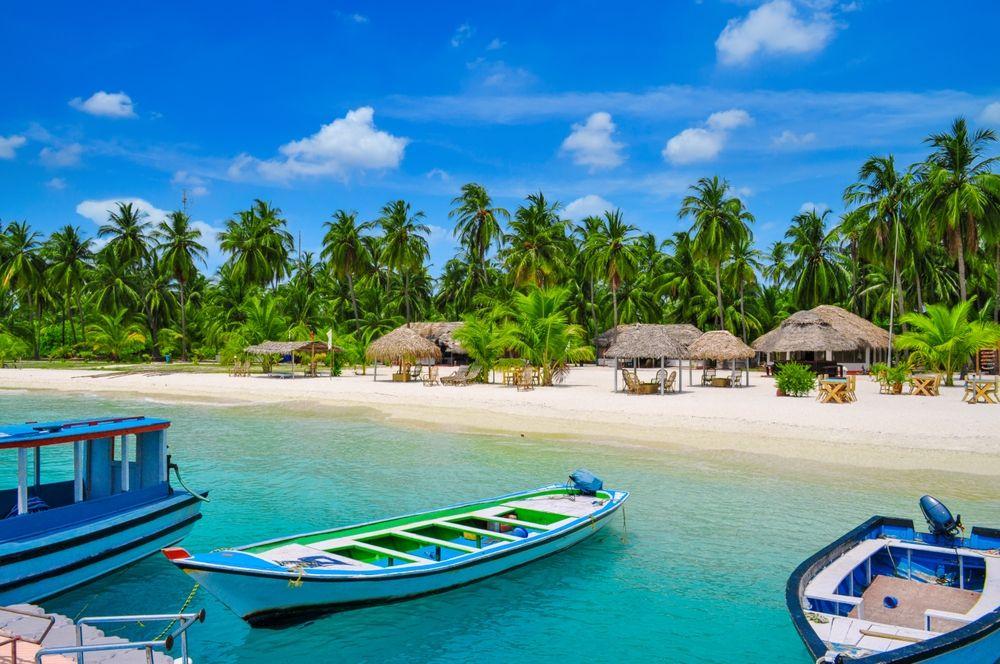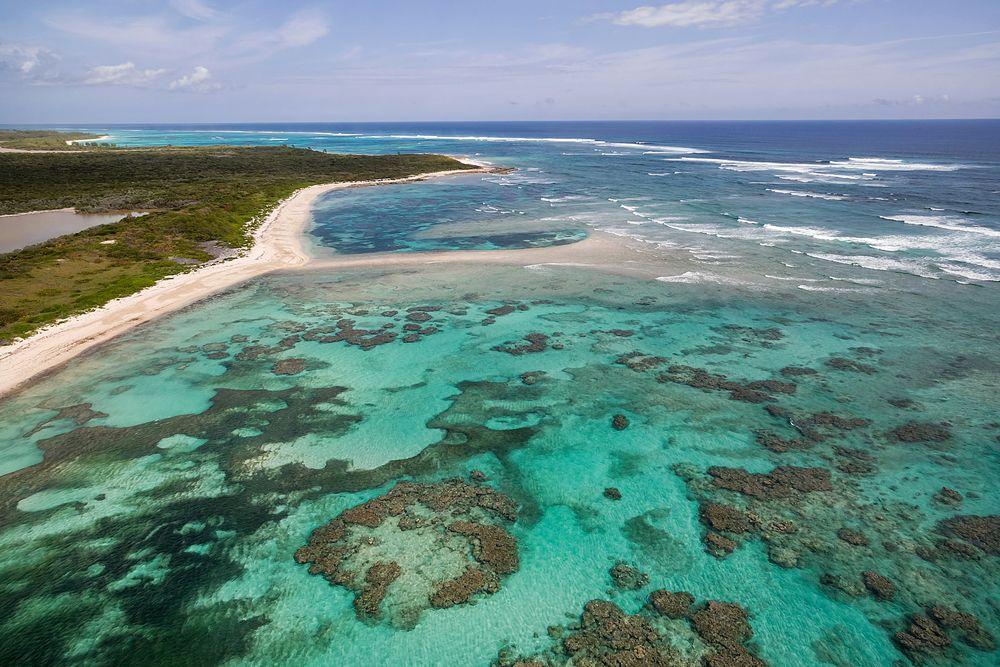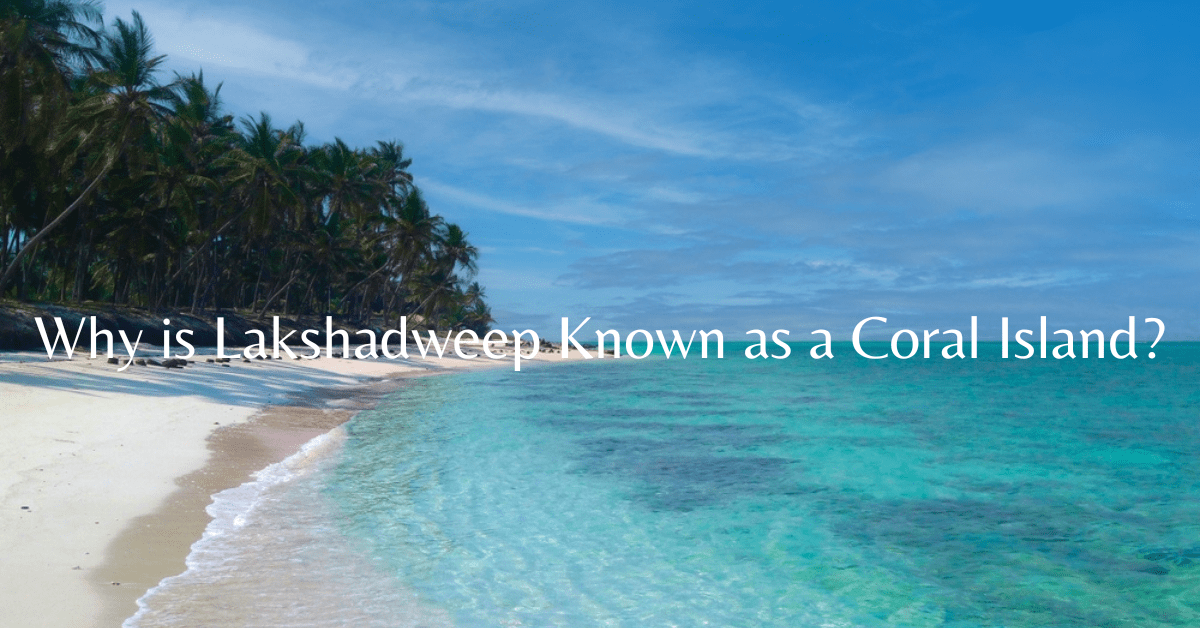Why is Lakshadweep Known as a Coral Island? Explore the secrets of Lakshadweep, known as a coral island due to its unique formation from vibrant coral reefs. Delve into the geographical wonders and cultural significance that make Lakshadweep a captivating destination.
Why is Lakshadweep Known as a Coral Island?

Lakshadweep, nestled in the heart of the Arabian Sea, is not just a tropical paradise known for its pristine beaches and azure waters.
It holds a unique identity as a coral island, adorned with vibrant coral reefs that contribute to its ecological richness and cultural heritage.
How to Become a Food and Travel Blogger
Geographical Location

Lakshadwip’s strategic location in the Arabian Sea plays a pivotal role in its designation as a coral island.
Situated off the southwestern coast of India, this archipelago comprises 36 atolls and coral reefs, creating a haven for marine life.
Formation of Coral Islands

To understand why Lakshadweep is a coral island, we delve into the fascinating world of coral reefs. These underwater structures form through the accumulation of calcium carbonate secreted by coral polyps over time.
The warm, clear waters of Lakshadwip provide an ideal environment for the growth and sustenance of these intricate ecosystems.
Lakshadweep’s Coral Ecosystem
The coral reefs in Lakshadweep boast a remarkable diversity of species, contributing to the overall health of the marine ecosystem.
The vibrant colors and intricate formations of these reefs make Lakshadweep a haven for snorkelers and divers, offering a glimpse into a mesmerizing underwater world.
Cultural Significance
Beyond their ecological role, coral reefs hold cultural significance for the inhabitants of Lakshadweep.
Local traditions and practices are intertwined with the presence of coral, reflecting a deep connection between the people and their natural surroundings.
Biodiversity in Lakshadweep
The coral reefs of Lakshadweep support a myriad of marine life, from colorful fish to majestic sea turtles.
The unique biodiversity of this region highlights the importance of preserving coral ecosystems to ensure the survival of these species.
Economic Importance
The economic significance of Lakshadweep’s coral reefs cannot be overstated. They play a crucial role in sustaining fisheries, providing livelihoods for local communities.
Additionally, the allure of coral reefs attracts tourists, contributing to the region’s economic well-being.
Conservation Efforts
Despite their resilience, Lakshadweep’s coral reefs face numerous threats. Conservation efforts are underway to protect these fragile ecosystems, with initiatives ranging from marine protected areas to community-led projects.
However, challenges persist in the face of climate change and human activities.
Lakshadweep’s Role in Climate Change
As climate change intensifies, coral reefs become essential indicators of environmental health. Lakshadweep’s coral ecosystems provide valuable insights into the impact of climate change on marine life, emphasizing the urgent need for global action.
Tourism and Coral Conservation

Balancing tourism with coral conservation is a delicate task. Sustainable tourism practices are imperative to ensure that the influx of visitors does not harm the very ecosystems that make Lakshadweep a sought-after destination.
Threats to Lakshadweep’s Coral Islands
Human activities, including overfishing and pollution, pose significant threats to Lakshadweep’s coral islands. Climate change exacerbates these issues, leading to coral bleaching and a decline in overall reef health. Urgent measures are required to mitigate these threats.
Government Initiatives
Recognizing the importance of coral conservation, the government of India has implemented policies to safeguard Lakshadweep’s coral ecosystems.
Collaborations with environmental organizations aim to address the complex challenges posed by human activities and climate change.
Government Initiativeshttps://lakshadweep.gov.in/
Education and Awareness

Educating both locals and tourists is paramount in ensuring the long-term survival of Lakshadweep’s coral reefs.
Awareness campaigns highlight the fragility of these ecosystems and encourage responsible behavior to minimize human impact.
Future Prospects
The future of Lakshadweep’s coral islands hinges on sustainable practices and ongoing research.
Innovations in coral conservation, coupled with community involvement, offer hope for the preservation of these extraordinary ecosystems.
Conclusion
In conclusion, Lakshadweep’s distinction as a coral island is not merely a geographical trait but a testament to the intricate relationship between nature and culture.
As we marvel at the beauty of its coral reefs, it is our collective responsibility to ensure their preservation for future generations.
Frequently Asked Questions (FAQs)
What makes Lakshadweep unique as a coral island?
Lakshadweep’s unique geographical location and coral ecosystems contribute to its distinct identity as a coral island.
How do coral reefs benefit the local economy in Lakshadweep?
Coral reefs in Lakshadweep support fisheries and attract tourists, significantly contributing to the local economy.
What are the main threats to Lakshadweep’s coral islands?
Human activities such as overfishing and pollution, coupled with the impacts of climate change, pose significant threats to Lakshadweep’s coral islands.
What are the main threats to Lakshadweep’s coral islands?
Human activities such as overfishing and pollution, coupled with the impacts of climate change, pose significant threats to Lakshadweep’s coral islands.
How is the government addressing conservation efforts in Lakshadweep?
The government has implemented policies and collaborated with environmental organizations to protect and conserve Lakshadweep’s coral ecosystems.
What role do tourists play in the conservation of Lakshadweep’s coral reefs?
Responsible tourism practices are crucial to minimize the impact of visitors on Lakshadweep’s coral reefs and contribute to their conservation.

1 thought on “Why is Lakshadweep Known as a Coral Island?”